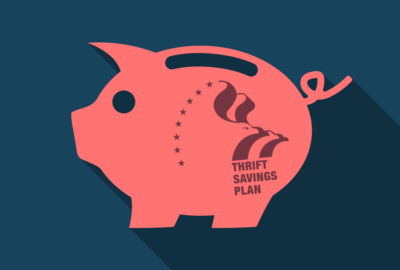Want a Roth IRA on steriods? Check your health plan.
What’s the single most important reason to shop around for health insurance? Two very important words — catastrophic coverage.
Tired of shelling out thousands of dollars each year for your federal health plan? Confused, irritated or both by the multiple-choices available under the Federal Employee Health Benefits (FEHB) Program? Why not consider picking a health plan that pays you? Thousands of federal and postal workers have done it. Joined a high deductible health plan that has allowed them to amass accounts — their very own money — worth $10,000 to $50,000.
Welcome to the federal benefits open season, which runs through Dec. 13.
If you do nothing — that is remain in the same plan year after year — you could easily wind up paying $1,000 extra in premiums next year if you are single, and $2,000 or more if you have a family plan. If so, there is a relatively simple solution. Switch to a similar, lower premium option of your current plan. Or to a different plan with similar benefits but much lower premiums.
It may also be time to explore plans that offer flexible spending accounts (FSAs), health savings accounts (HSAs) and other options that weren’t available since you last shopped.
Sticking with the same plan year-after-year means lots of people are paying thousands of dollars too much, according to insurance expert Walton Francis. He says many could get similar, and in some cases, superior coverage by switching to a similar health plan or the standard or basic — as opposed to the high option — in their current plan. In some cases people can actually get better coverage by joining a plan with lower premiums.
Francis is the person who first referred to the high deductible federal health plans as Roth IRAs on steriods. A way to build a tax-free nest egg with free money! The high deductible plans are a good example of things many people should at least consider instead of sleep walking during another open season.
Because of their high deductibles, some plans have premiums that tend to be on the low-side of the 30-plus plans available federal workers, retirees and their survivors. As with other plans in the FEHB program, Uncle Sam will pay roughly 70% of the premiums. For life. Many private sector plans offer lower premiums but drop workers when they retire or become eligible for Medicare.
Shopping for health insurance is a pain, at best. But it is definitely worth it. Especially if you have an expert guide. Somebody like Walton Francis, who, along with Kevin Moss, edits the Consumers’ Checkbook Guide to Federal Health Plans. The book is $15.95 on newsstands. If you can find a newsstand. Many prefer the online version, which is more flexible and user-friendly. Many federal agencies now subscribe to it for their employees. If not, you can purchase it and get a 20% price cut if you mention FEDERALNEWS.
What’s the single most important reason to buy health insurance? Two very important words: catastrophic coverage. What if 2022 is the worst medical year in history for you or your family? An accident, a wreck, a major disease. According to Checkbook’s ranking system, a family of three has a catastrophic limit that would be just under $9,000 in the Kaiser high options plan vs. between $15,000 and more than $18,000 in some other plans. Whatever else you do (or don’t do) during this open season, check the limit-to-you amount of each plan you consider.
Other things to think about include how to save on taxes when paying your medical bills, and a half dozen items you probably hadn’t thought of but should consider. Which is why today’s Your Turn episode is a must-listen. If not today at 10 a.m. EST, then later on after it is archived on our home page. It could be the most productive 40 minutes of your year. For you and your family.
If you have questions for Walt Francis send them to me before showtime at mcausey@federalnewsnetwork.com and we will have the most cost-effective, safe, anwer for you.
Nearly Useless Factoid
By Alazar Moges
According to Guinness World Records, the heaviest turkey ever recorded weighed in at 86 lbs. in December of 1989. The turkey belonged to Philip Cook of Peterborough, United Kingdom.
Source: Guinness World Records
Copyright © 2025 Federal News Network. All rights reserved. This website is not intended for users located within the European Economic Area.
Mike Causey is senior correspondent for Federal News Network and writes his daily Federal Report column on federal employees’ pay, benefits and retirement.
Follow @mcauseyWFED






